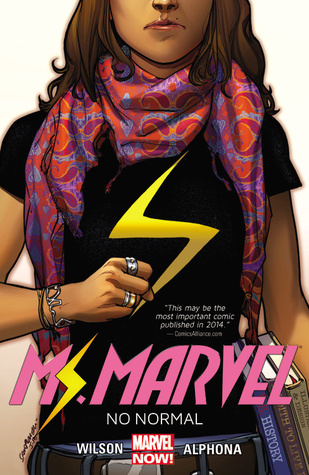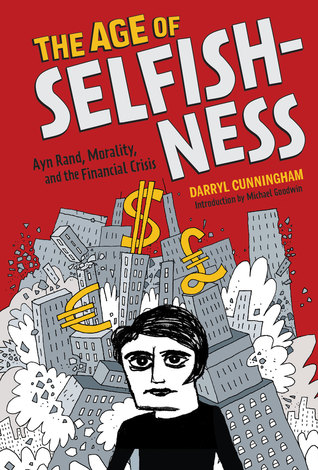I went looking for Ms. Marvel, because there's been a lot of buzz about it (she's brown! and Muslim! and a superhero??? Superheroes don't all have to be white men???). After getting distracted by lots of colourful pretty things, I did come home with Ms. Marvel. Plus a treatise on the influence of Ayn Rand on the 2008 financial crisis. And a comic book about Star Trek TNG and Dr. Who, together. (I mean, how could I resist?!) I'm telling you, you've got to go check out those graphic novel shelves. It's crazy!
So, what would happen if the Borg met up with the Cybermen?
 Why has no one thought of this before?! Assimilation2 (by multiple authors/illustrators) is a fun, wish-fulfillment adventure—because who hasn't imagined what Captain Picard and the Doctor would think of each other if they ever met? (To be honest, it had never crossed my mind, but as soon as I saw this cover it seemed the most obvious thing in the world.) This story has everything you love about both series and some fun surprises. The requisite asides from characters referencing events from TV episodes so you can feel in-the-know if you're a fan. It's a tad explain-y at times, but I loved the art, and just the whole concept, really. (Probably no point reading it if you aren't a fan of both series, though.)
Why has no one thought of this before?! Assimilation2 (by multiple authors/illustrators) is a fun, wish-fulfillment adventure—because who hasn't imagined what Captain Picard and the Doctor would think of each other if they ever met? (To be honest, it had never crossed my mind, but as soon as I saw this cover it seemed the most obvious thing in the world.) This story has everything you love about both series and some fun surprises. The requisite asides from characters referencing events from TV episodes so you can feel in-the-know if you're a fan. It's a tad explain-y at times, but I loved the art, and just the whole concept, really. (Probably no point reading it if you aren't a fan of both series, though.)Ms. Marvel is a great story (by G. Willow Wilson) with great art (by Adrian Alphona). Lots of reviewers have dealt with it in depth; I don't have much to add except that I liked it a lot. (And I'm not a Marvel fan, haven't read any other Marvel comics, and don't know anything about Captain Marvel (who doesn't show up in this book—in case you are a fan and were hoping to see her.)) I thought the family interactions felt very real, and Kamala's reaction to her new superpowers was entirely believable. I particularly loved Bruno. I'll be looking for the next episode (or, rather, next collection of episodes; I guess that's how these things work).
I was serious about the Ayn Rand thing. Darryl Cunningham's The Age of Selfishness: Ayn Rand, Morality, and the Financial Crisis has a rather frightening cartoon of the über-individualist writer on the front, so you can guess Cunningham isn't a fan. He collates the opinions of a lot of different writers on the causes of the sub-prime mortgage global financial meltdown, making particular note of the fact that Alan Greenspan is an Ayn Rand devotee, and tracing the anti-regulation policy trends of the 90's and 00's to Rand's promotion of selfishness as a virtue. If your eyes are glazing over at my summary, rest assured the cartoon format makes this a very readable, remarkably comprehensible explanation of a very complex topic. American conservatives won't be very happy with his depiction of their psychological underpinnings (based on the book, The Republican Brain: The Science of Why They Deny Science—and Reality, by Chris Mooney, so you can see where that's going!). He makes a concerted effort to prove he's not anti-Republican, but I'm pretty sure Republicans will still be offended, and I think it's too bad, because his indictment of the greed and fraud that led to the crisis is a message everyone needs to hear. (Because the root causes have not been fixed, so . . . yikes.)

